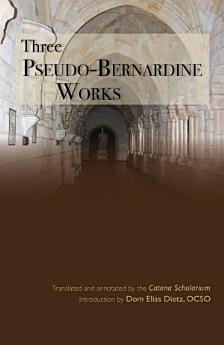Three Pseudo-Bernardine Works
About this ebook
Under the direction of Ann Astell and Joseph Wawrykow, with the assistance of Thomas Clemmons, a talented team of young scholars from the University of Notre Dame (the Catena Scholarium) offers here a complete translation of three of these Pseudo-Bernardine essays, providing notes that identify sources, clarify allusions, highlight rhetorical strategies, and demonstrate overall a fascinating, intertextual complexity. The Bernard who emerges from these texts speaks with many voices to herald a living, Bernardine tradition.
About the author
Elias Dietz has been a monk of the Abbey of Gethsemani since 1988. He has published studies on early Cistercian authors in various journals, including Cistercian Studies Quarterly,of which he was editor from 2003 to 2007. Since 2008 he has served as abbot of his community. With regard to Isaac of Stella, his main contributions have been a study of his biography (CSQ, 2006) and an edition and translation of his Letter on the Canon of the Mass (Cîteaux, 2014). He is currently collaborating with Sources Chrétiennes on a volume of Isaac’s letters.







